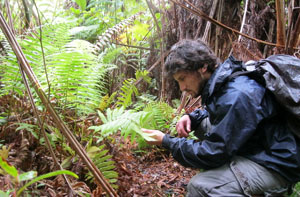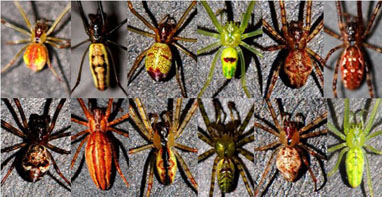 |
||
 |
||
| Home | People | Research | Publications | Contact Us | Teaching |
 |
 | ||
|
Early stages and temporal dynamics of the Tetragnatha adaptive radiation in the Hawaiian archipelago
Darko Cotoras
The questions that drive my research are: (1) How does a radiation get started? and (2) How are the posterior changes in number of lineages and morphological variation? In order to answer them I am using the Tetragnatha spiders as a system to test: (1) the effects of the volcanic history of the Big Island on the genetic and morphological variation, (2) evidence for past speciation processes in the Maui Nui complex and (3) the biogeography and diversification patterns of the Tetragnatha spiders from different remote archipelagos in the Pacific Ocean. I am also doing phylogenetic studies on endemic spiders from the Juan Fernández archipelago and characterizing the spider community of Rapa Nui (Isla de Pascua/Easter island). Previously during my master's degree, I studied the evolution of the gene networks involved in appendage development in bilaterian animals. | |||
|
Publications |
|||
| Contact info: Darko Cotoras Viedma Department of Integrative Biology University of California, Berkeley 1005 Valley Life Sciences Bldg #3140 Berkeley CA 94720-3140 Phone: 510-643-9746 Fax: 510-643-6264 Email: darkocotoras(at)berkeley.edu |
CV's: English Español |
Links: EvoLab UC Berkeley Essig Museum of Entomology Instituto de Filosofía y Ciencias de la Complejidad (IFICC) Zebrafish for Innovation and Research | |
BACK TO TOP | |||
| University of California, Berkeley | Department of Integrative Biology | |||